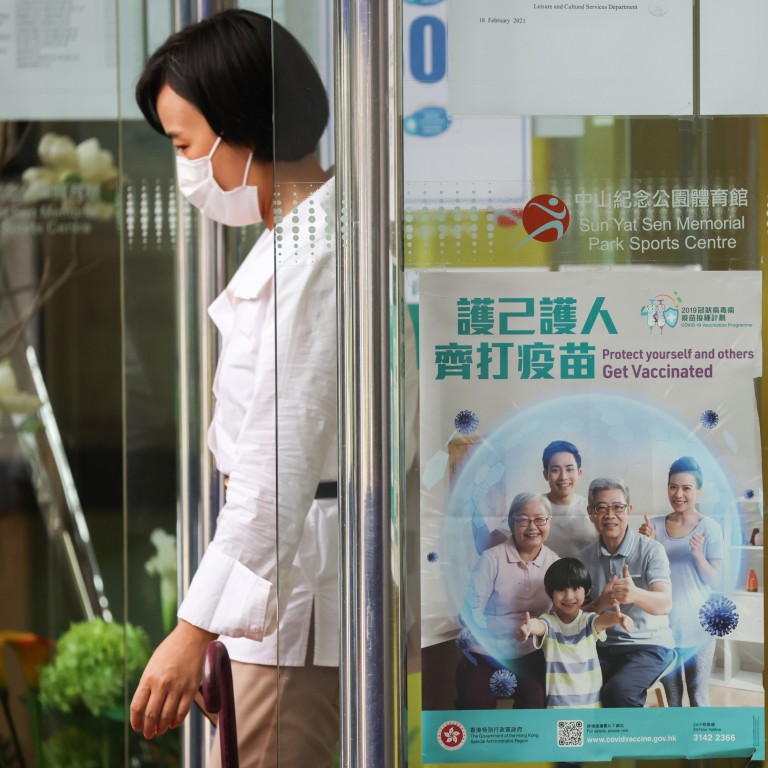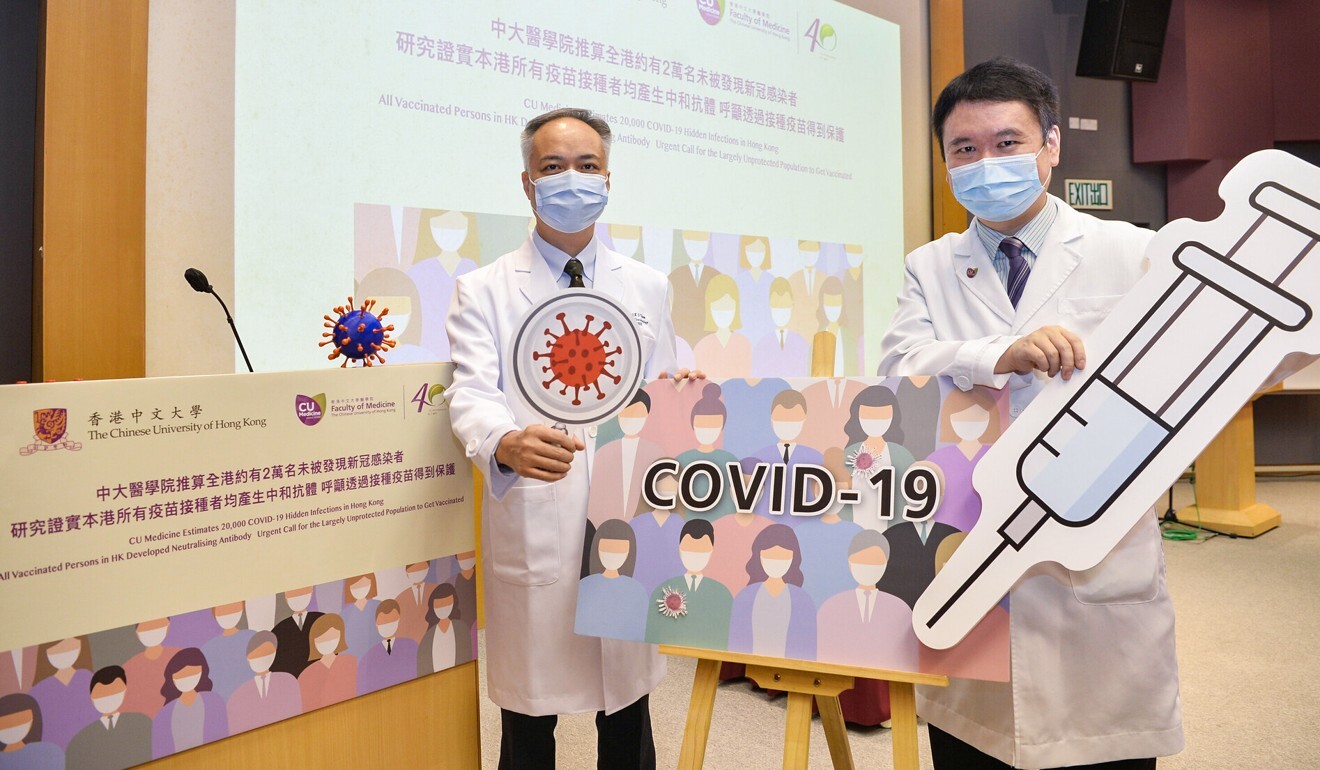
Coronavirus: more than 20,000 Hongkongers could be hidden carriers of Covid-19, study shows
- Chinese University research estimates a rate of two hidden patients for every confirmed infection in city
- Another study of recipients of Sinovac and BioNTech vaccines shows all developed antibodies with no serious reactions
Academics from the faculty of medicine at Chinese University also revealed on Wednesday that another study showed 100 per cent positive antibody response for all participants who received either the Chinese-made Sinovac or German-produced BioNTech vaccine, with none developing serious adverse reactions.
“This should offer some good news to Hongkongers who may still harbour doubts about getting vaccinated,” Professor Paul Chan Kay-sheung, chair of CUHK’s department of microbiology, told a press conference.
“Given the uncertain development of the epidemic in neighbouring areas of Hong Kong, and the emerging new strains, we are calling on citizens to get vaccinated as early as they can.”

In the first study, researchers recruited 4,198 Hongkongers between April last year and this year after the city weathered four major waves of Covid-19, and found six – four men and two women – carried the immunoglobulin G (IgG) antibody in their systems, a sign of previous infection.
Five of the patients had respiratory symptoms and had previously been to Europe where the pandemic had been rife. But worryingly, the remaining patient had no travel history, while the five who did tested negative during hotel quarantine, meaning they could have been allowed to enter the community while infectious, becoming hidden carriers.
As people in Hong Kong reject jabs, what happens to city’s unused vaccines?
Chan said the presence of antibodies might mean those patients were not infectious any more, but it could point to residual transmission chains in the community. He said the government could consider regular antibody tests for people finishing quarantine, as well as for suspected Covid-19 patients in hospitals, to ascertain whether their infections were false positive or real.
Six patients out of 4,198 participants represented a 0.14 per cent positive rate, which the research team projected could mean up to 21,415 cases – 19,659 unidentified infected adults and 1,756 children – in Hong Kong.
With the city’s official Covid-19 tally standing at 11,836 cases as of Wednesday, Chan said the findings showed an estimated rate of two hidden patients for every confirmed infection. But he added the ratio was still far below that of many coronavirus hotspots worldwide, such as Geneva in Switzerland, which had a ratio of 11.6 to one.
Hong Kong to launch ‘cruises to nowhere’ in late July with strict Covid-19 rules
The team said together with the identified infections, there were actually 33,243 Covid-19 patients at large in Hong Kong. While those who recovered from past infections could have developed immunity, it also meant more than 99.5 per cent of Hongkongers were not naturally protected, Chan said.
In the second study involving 111 recipients of either the Sinovac or BioNTech vaccine, all of them had been able to generate antibodies, including the eldest participant, an 82-year-old.
Asked whether the government and the business sector should provide more incentives for vaccination such as free flights, hotels and buffet deals, Professor Martin Wong Chi-sang, of CUHK’s school of public health and primary care, said the issue was a question of medical ethics.
“Most stakeholders in the medical community would like to see herd immunity achieved by vaccination. The key thing is to take the middle ground and not be too extreme one way or another,” he said.
Vaccinated South Koreans allowed to go out mask-free from July
Wong said he supported businesses offering a day off or so to vaccinated employees, but cash incentives had been proven to be counterproductive elsewhere as they raised further doubt over potential side effects.
Three months on from the start of Hong Kong’s vaccination scheme, only about 1.23 million people, or 17 per cent of the population, have received their first dose. More than 920,000 people have got their second shot.
